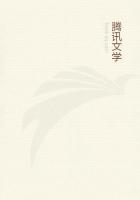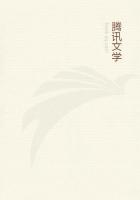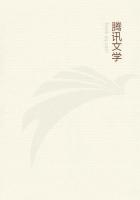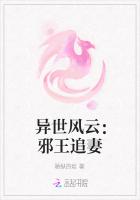By a Gentleman of the Temple.
While cynic CHARLES still trimm'd the vane 'Twixt Querouaille and Castlemaine, In days that shocked JOHN EVELYN, My First Possessor fix'd me in.
In days of Dutchmen and of frost, The narrow sea with JAMES I cross'd, Returning when once more began The Age of Saturn and of ANNE.
I am a part of all the past;
I knew the GEORGES, first and last;
I have been oft where else was none Save the great wig of ADDISON;And seen on shelves beneath me grope The little eager form of POPE.
I lost the Third that own'd me when French NOAILLES fled at Dettingen;The year JAMES WOLFE surpris'd Quebec, The Fourth in hunting broke his neck;The day that WILLIAM HOGARTH dy'd, The Fifth one found me in Cheapside.
This was a Scholar, one of those Whose Greek is sounder than their hose;He lov'd old Books and nappy ale, So liv'd at Streatham, next to THRALE.
'Twas there this stain of grease I boast Was made by Dr. JOHNSON'S toast.
(He did it, as I think, for Spite;
My Master call'd him Jacobite!)
And now that I so long to-day Have rested post discrimina, Safe in the brass-wir'd book-case where I watch'd the Vicar's whit'ning hair, Must I these travell'd bones inter In some Collector's sepulchre!
Must I be torn from hence and thrown With frontispiece and colophon!
With vagrant E's, and I's, and O's, The spoil of plunder'd Folios!
With scraps and snippets that to ME
Are naught but kitchen company!
Nay, rather, FRIEND, this favour grant me:
Tear me at once; but don't transplant me.
CHELTENHAM, Sept. 31, 1792.
The conceited ghoul writes his notes across our fair white margins, in pencil, or in more baneful ink. Or he spills his ink bottle at large over the pages, as Andre Chenier's friend served his copy of Malherbe. It is scarcely necessary to warn the ******* against the society of book-ghouls, who are generally snuffy and foul in appearance, and by no means so insinuating as that fair lady-ghoul, Amina, of the Arabian Nights.
Another enemy of books must be mentioned with the delicacy that befits the topic. Almost all women are the inveterate foes, not of novels, of course, nor peerages and popular volumes of history, but of books worthy of the name. It is true that Isabelle d'Este, and Madame de Pompadour, and Madame de Maintenon, were collectors; and, doubtless, there are other brilliant exceptions to a general rule.
But, broadly speaking, women detest the books which the collector desires and admires. First, they don't understand them; second, they are jealous of their mysterious charms; third, books cost money; and it really is a hard thing for a lady to see money expended on what seems a dingy old binding, or yellow paper scored with crabbed characters. Thus ladies wage a skirmishing war against booksellers' catalogues, and history speaks of husbands who have had to practise the guile of smugglers when they conveyed a new purchase across their own frontier. Thus many married men are reduced to collecting Elzevirs, which go readily into the pocket, for you cannot smuggle a folio volume easily. This inveterate dislike of books often produces a very deplorable result when an old collector dies. His "womankind," as the Antiquary called them, sell all his treasures for the price of waste-paper, to the nearest country bookseller. It is a melancholy duty which forces one to introduce such topics into a volume on "Art at Home." But this little work will not have been written in vain if it persuades ladies who inherit books not to sell them hastily, without taking good and disinterested opinion as to their value. They often dispose of treasures worth thousands, for a ten pound note, and take pride in the bargain. Here, let history mention with due honour the paragon of her *** and the pattern to all wives of book-collecting men--Madame Fertiault. It is thus that she addresses her lord in a charming triolet ("Les Amoureux du Livre," p. xxxv):-"Le livre a ton esprit . . . tant mieux!
Moi, j'ai ton coeur, et sans partage.
Puis-je desirer davantage?
Le livre a ton esprit . . . tant mieux!
Heureuse de te voir joyeux, Je t'en voudrais . . . tout un etage.
Le livre a ton esprit . . . tant mieux!
Moi, j'ai ton coeur, et sans partage."
Books rule thy mind, so let it be!
Thy heart is mine, and mine alone.
What more can I require of thee?
Books rule thy mind, so let it be!
Contented when thy bliss I see, I wish a world of books thine own.
Books rule thy mind, so let it be!
Thy heart is mine, and mine alone.

